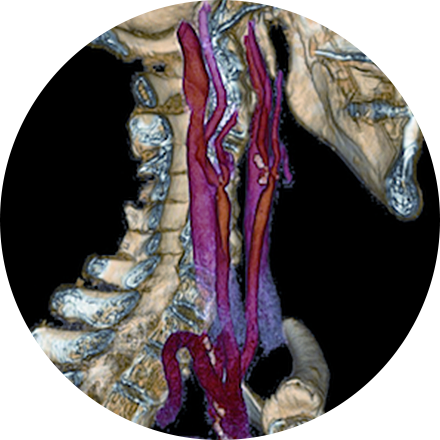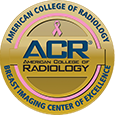
A variety of imaging techniques — CT, MRI, ultrasound and X-ray — are used to help diagnose cancer in the body. Radiologists also help identify cancer cells through biopsies. Since Radiology addresses every system in the body, we’re uniquely positioned to collaborate with oncologists to handle multi-stage, complex cancer cases.
Some Cancer Imaging Procedures Include:
We provide diagnostic, palliative and therapeutic procedures to address bone cancer. DEXA scans help physicians evaluate the health of bone, and monitor its degeneration or stability over time. An image-guided biopsy, usually using fluoroscopy and contrast, may be used to help diagnose lesions and cell samples from bone. Vascular interventions can direct cancer-fighting drugs to specific locations in the body, without affecting other areas. Vertebroplasty can help alleviate pain symptoms from compressed or collapsed vertebrae.
Breast cancer is the second most common cancer in women (after lung cancer), and early detection of breast cancer vastly increases survival rates. Scheduling a regular mammogram is one of the most important things you can do to ensure your well-being and take control of your health. We provide advanced screening and diagnostic procedures, such as Breast MRI and a range of biopsies. We offer a comprehensive breast imaging services.
The most common form of kidney cancer is renal cell carcinoma, which forms in the lining of the renal tubules that filter blood and produce urine. Often these small tumors are asymptomatic and only found on CT or MRI exams. Image-guided biopsy, usually using fluoroscopy and contrast, may be used to obtain and investigate tissue samples. Cryoablation is proving effective as a means of treating certain kidney tumors with a same-day procedure, instead of invasive surgery. Cryoablation uses extremely cold gas, an “ice ball,” directly on the tumor (via an image-guided probe) to destroy frozen tumor cells. Embolization may also be used to restrict large tumors that are invading other structures.
Image-guided biopsy, usually using fluoroscopy and contrast, may be used to obtain and investigate liver tissue samples for diagnosis. Surgery can be difficult for some liver tumors, if they are small or if they have grown into blood vessels. Interventional radiology can, in those cases, provide alternatives to surgery. Ablation and embolization can target the liver’s cancerous cells.
Smoking is the leading risk factor for lung cancer, and the lung is the most common site for primary cancer worldwide. In addition to highly accurate CT screening of the lungs for at-risk patients, we provide biopsy as a diagnostic tool. An image-guided biopsy, usually using fluoroscopy and contrast, may be used to investigate lesions and tissue samples from the lungs. We also provide ablation as a therapeutic intervention. Ablation is the insertion of needle electrodes directly into the site of a tumor in the lungs. The radio waves emitted by the probe create heat in the tissue, which kills cancerous cells in a small area around the probe.








